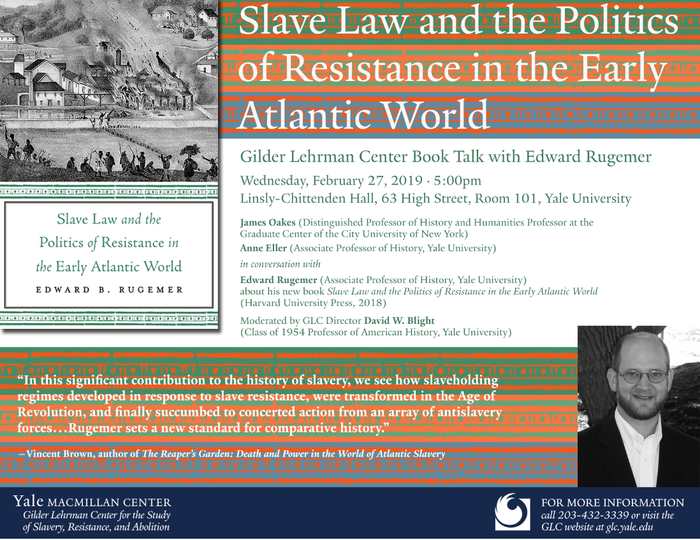Book Talk: "Slave Law and the Politics of Resistance in the Early Atlantic World" by Edward Rugemer
The Gilder Lehrman Center at Yale is excited to celebrate the publication of Ed Rugemer’s new book, Slave Law and the Politics of Resistance in the Early Atlantic World. On Wed., February 27th, at 5pm in LC101, Ed will be joined in conversation with Jim Oakes and Anne Eller, with David Blight moderating.
